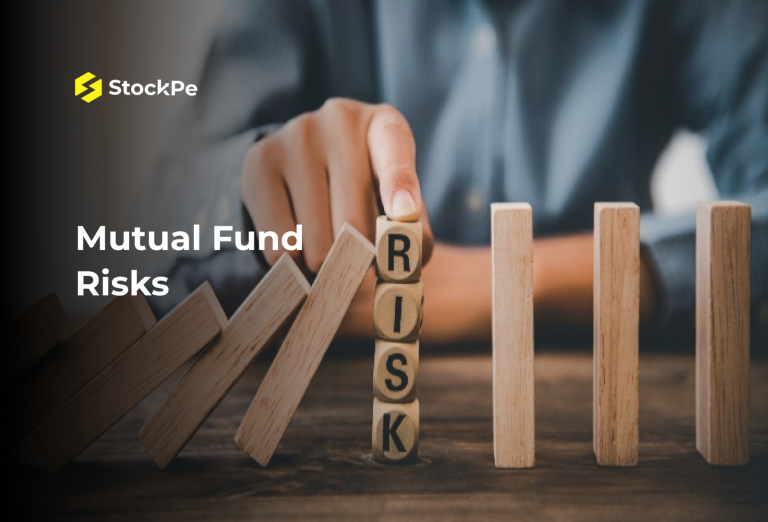During a market decline, any investor, whose portfolio has been affected will be worried and start thinking of leaving the market altogether. However, one of the key aspects to avoid is making hasty decisions, such as panic selling. It is still more advisable to focus on the strategic moves in response to market changes rather than on individual approaches that have direct impacts on the values of the stock.
Staying Calm Throughout Trading/Investing
Market prices that fall may lead to panic selling and while this approach may be common, it is not always the best strategy. Awareness of your risk tolerance level makes you better positioned to manage such situations appropriately in the market. Risk tolerance depends on the investment objectives, investment time frame, and how much the fluctuating market affects you.
Market risks, such as downtrends in the market, can be offset if an investor has a diversified portfolio. Diversification means investing in a range of securities to minimize the adverse effect of worst performers. In this way, you can limit the impact that such a situation will have on your portfolio about extreme fluctuations in the market.
Investing in Stocks
Stock investment does not fade out as people’s top preference for saving and investment. However, market declines are as common as every other aspect of an investment cycle.
The stock markets have their high and low moments, moments of upswing, and moments of downturns. This is, of course, accentuated by downturns, which, though could be very troubling, are known to come for a limited period and the market recovers. A long-term investment strategy reveals that those investing for the long term often receive their reward once the market recovers.
The Cyclical Effect
It is important to note that long-term or strategic investors always know that market pullbacks are normal in the investment cycle. For instance, when the financial crisis occurred in 2008, many people decided to sell their investments, fearing that the market was going to go down even further, hence missing out on the buying opportunity when the market started to climb in March 2009. Likewise, the growth of the market after a drastic decline due to the COVID-19 pandemic also indicates that the market can be revived after experiencing a downturn.
Strategies for Handling Market Downturns
Instead of focusing on why the stock market is going down, staying prepared for the adversities that may strike is essential. Here are some effective tips for the same:
1. Understand Your Risk Tolerance
Before getting yourself in a situation where a market downturn occurs, evaluate your ability to handle risks. This includes your investment time horizon, your cash requirements, and emotional reactions regarding the market condition. Using online risk tolerance questionnaires, and stock market simulators may give insights into how one can handle live market conditions.
For instance, those who are close to retiring or are already retirees need to protect capital and create income streams, which can be supported by lower-risk investments such as bond funds. On the other hand, long-term investors may target high-growth investments to attain their investment goals despite the increased risk.
2. Aim to Win and Control Your Losses
Develop a contingency plan to minimize the loss that can be incurred in the stock market. Diversification is crucial since spreading investments across various stocks, bonds, cash, and other assets ensures you are not heavily exposed to a particular market or investment. Also, the technique known as dollar cost averaging – investing a set amount regardless of the current fluctuating market – should provide against these wild swings.
Being equipped with worst-case plans and adequate risk management measures helps to shield a portfolio from getting too badly shaken during downturns.
3. Empaphasis on the Long Term
As it can be seen, short-term fluctuations in the market can create shocks to investors; however, long term investors usually come out with gains. These short-term declines are usually trends in the general upward pattern of prices. Market corrections are the best time to ‘stock up’ on high-quality stocks while they are available for cheaper price.
Having a long-term outlook allows you to see troughs in the market as positives, not negatives. Dollar-cost averaging can also help spread out the costs over time and improve the position for longer-term gains.
Why is the stock market going down?
Several factors can be the reason behind why is the stock market going down, as follows:
- The Job Market: Employment statistics for the past few months have revealed signs of the economy slowing down; hence people’s spending power is affected.
- Federal Reserve Policies: Interest rate policy and economic indicators drive expectations in the marketplace. The data suggests that there might be future rate cuts that would affect the markets.
- Growth Expectations vs. Risks: The current stock price depends on the forecasts of future profits as well as related risks. Market expectations have been altered based on recent economic data.
- Volatility Scares: During the recent market downturn, the volatility index rose to the occasion, indicating a high level of risk in the market.
- Stubborn Inflation: Inflationary worries continue to affect the Federal Reserve as well as the markets on a long-term basis.
- Investor Sentiment: The attitude of the market is somewhat unstable and may affect the decisions of investors and shifts in the market.
- Negative Economic Data: Current statistics, such as job reports and manufacturing figures, have led to market deterioration.
Final Words
It is important to know why the stock market is going down or why it does and use the right approach when it is the situation. This is essential to minimize any wrong decision that might be made. Knowing your tolerance to risk, diversifying your investment portfolio, and keeping an eye on the long-term investment objectives will help you to better endure losses in the market.
Frequently Asked Questions
1. What should I do if I am concerned with the risks of engaging in the stock market?
It is important to keep emotions out of decision-making and not make decisions based on short-term fluctuations in the stock market. Rather, concentrate on knowing your risk profile, spreading your investment, and looking at the long-run returns.
2. In what manner can diversification prove beneficial when the market takes a downturn?
Diversification means investing across different types of investments like equities, fixed, income securities or property among others. This enables one to minimize the effect of a decline in any given asset class on the overall portfolio.
3. What is dollar-cost averaging, and what can I gain out of it?
Dollar-cost averaging is an investment plan where an investor invests a predetermined amount of money at regular time intervals irrespective of the stock market. This approach can minimize market fluctuations and bring the total average cost of each share lower in the long run.





